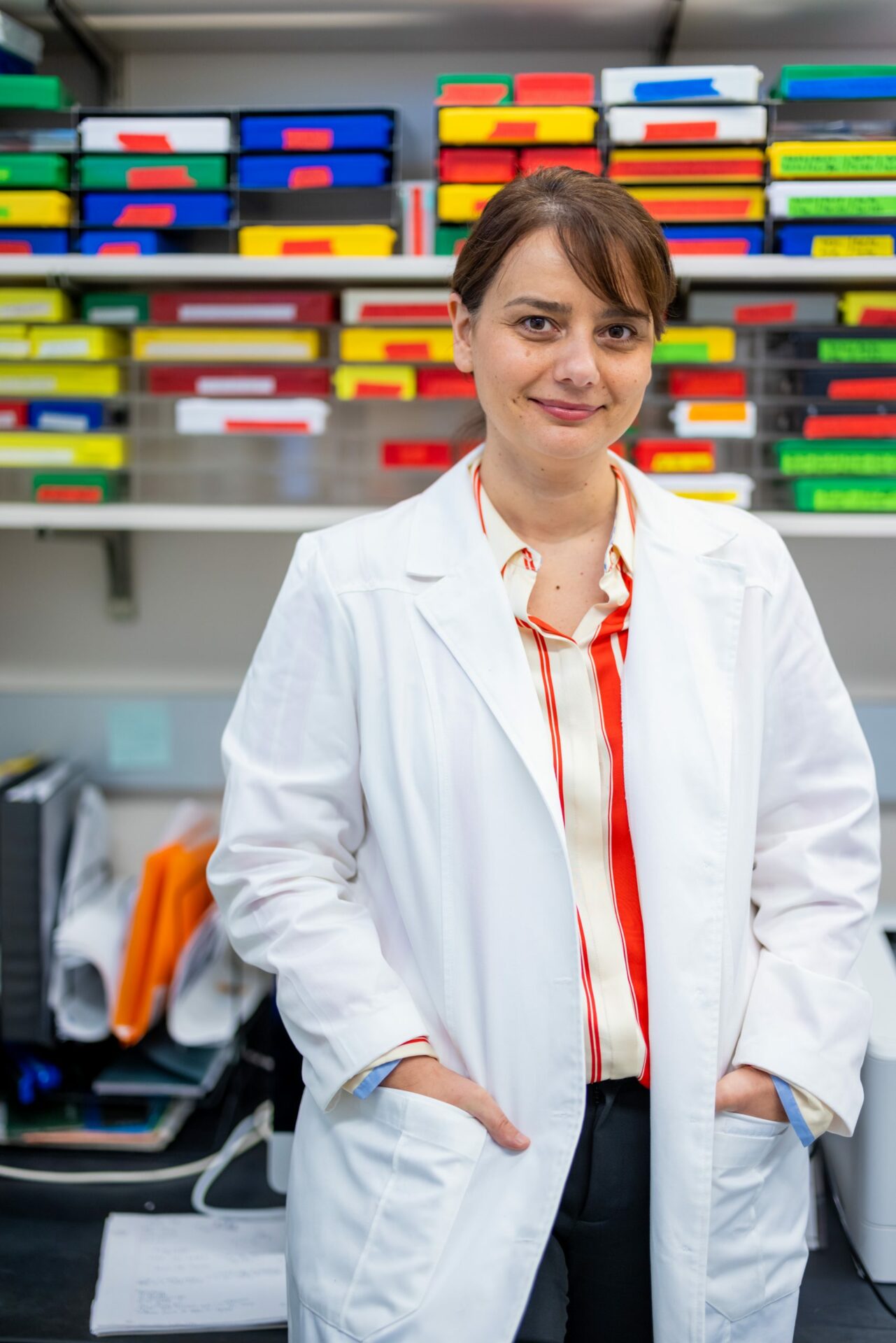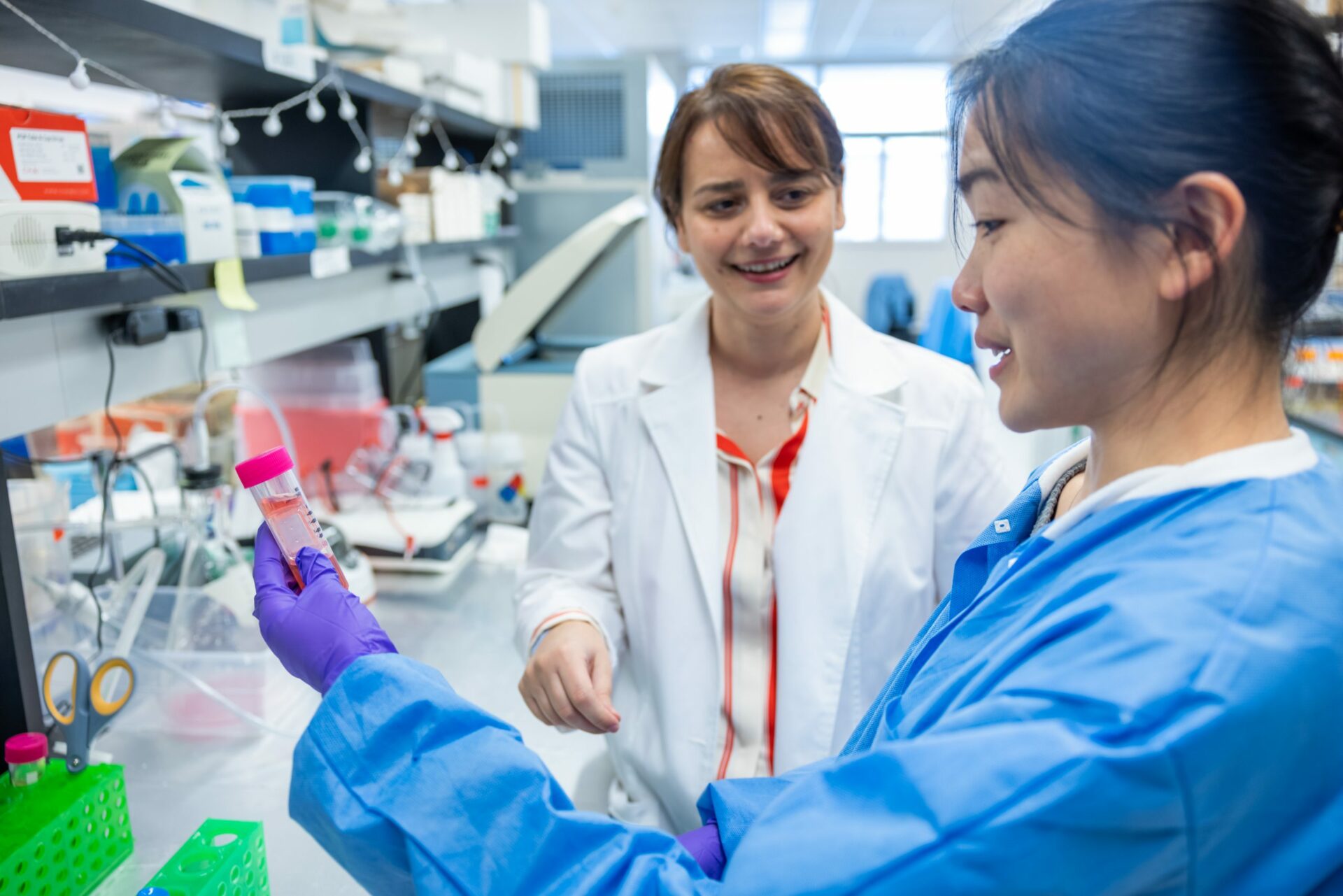When people get tired or stressed, we may grab a quick snack or extra cup of coffee to get through the day. Cancer actually has coping mechanisms, too. As cancer cells grow uncontrollably, they often run low on nutrients and oxygen. To survive in these substandard conditions, they draw on emergency supplies tucked away in particles called stress granules.
 Could targeting these stress granules be the ticket to fighting cancer more effectively? V-funded researcher Elda Grabocka, Ph.D., of the Sidney Kimmel Cancer Center at Jefferson University, is working to find out.
Could targeting these stress granules be the ticket to fighting cancer more effectively? V-funded researcher Elda Grabocka, Ph.D., of the Sidney Kimmel Cancer Center at Jefferson University, is working to find out.
“The potential role of stress granules in helping cancer cells cope with stress has important implications for existing therapeutics,” said Grabocka. “We hope to find out how important stress granules are to the initiation and development of cancer and see if we can improve outcomes by combining existing chemotherapies with approaches to target stress granules.”
In addition to helping cancer cells grow rapidly, stress granules likely play a role in helping cancers resist treatment. Many therapeutics, especially chemotherapy, work by inducing stress in cancer cells. It makes sense that the same coping mechanisms that help them survive rapid growth could also help cancer cells deal with the stress of the treatment.
Grabocka notes that the study of stress granules is still in its early days, and while not much is currently known about them, there is potentially much to gain. Her team is focusing on their role in pancreatic cancer, an extremely aggressive cancer with a poor survival rate.
“The therapeutic options for pancreatic cancer patients are very limited. We have found that pancreatic cancer cells have very high levels of stress granules and are highly dependent on them for survival under stress,” said Grabocka. “This is in large part due to the mutated gene that drives pancreatic cancer, the KRAS oncogene, which we have found can stimulate the cellular capacity to make stress granules.”
This knowledge has Grabocka and her team hopeful that if they can develop a strategy to target these stress granules, they could provide a new treatment option for pancreatic cancer patients. It could also potentially translate to better treatment strategies for other cancers driven by RAS mutations, which account for around 30% of all cancers.
“I think this work could provide a new framework for our understanding of how oncogenic RAS orchestrates tumor growth as well as resistance to therapy,” said Grabocka. “It places stress adaptation as a critical node in these processes. It will be important to identify how to target stress adaptation and how to integrate therapies that target stress adaptation with existing therapies for treatment of mutant RAS cancers.”
 As Grabocka’s work continues, it’s important to note that a V Scholar grant in 2017 got her lab started. Because the V Foundation looks to fund new and exciting theories, she was able to receive funding to begin studying this emerging idea.
As Grabocka’s work continues, it’s important to note that a V Scholar grant in 2017 got her lab started. Because the V Foundation looks to fund new and exciting theories, she was able to receive funding to begin studying this emerging idea.
“It was the very first grant I got when I started my independent laboratory, and it was instrumental to my research. Stress granules are quite new, new enough for me to wonder how traditional funding mechanisms would see my approach,” said Grabocka. “It could have been perceived as too risky or too preliminary. The funding from the V Foundation got our research going, enabled me to get those first key exciting and promising results that we could then utilize as the basis for proposals that were later funded by the National Cancer Institute.”
Thanks to research like that of Grabocka and her team, we continue to move forward with new strategies and ideas in attacking cancer. With more funding, we open new doors and find new pathways toward early detection, upgraded therapies and Victory Over Cancer®.
“I think we’re on the cusp of making cancer a manageable disease where treatments will greatly expand longevity and quality of life,” said Grabocka. “The amount of progress has been incredible. The work we are doing was unfathomable just a few years ago.”




